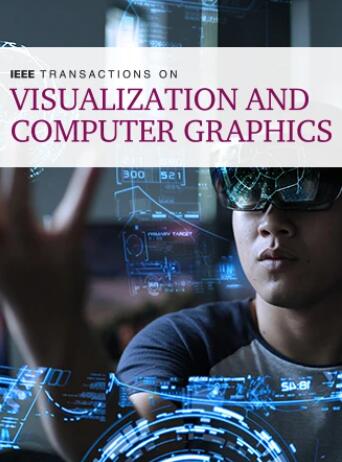What's the Situation with Intelligent Mesh Generation: A Survey and Perspectives
IF 6.5
1区 计算机科学
Q1 COMPUTER SCIENCE, SOFTWARE ENGINEERING
IEEE Transactions on Visualization and Computer Graphics
Pub Date : 2022-11-11
DOI:10.48550/arXiv.2211.06009
引用次数: 1
Abstract
Intelligent Mesh Generation (IMG) represents a novel and promising field of research, utilizing machine learning techniques to generate meshes. Despite its relative infancy, IMG has significantly broadened the adaptability and practicality of mesh generation techniques, delivering numerous breakthroughs and unveiling potential future pathways. However, a noticeable void exists in the contemporary literature concerning comprehensive surveys of IMG methods. This paper endeavors to fill this gap by providing a systematic and thorough survey of the current IMG landscape. With a focus on 113 preliminary IMG methods, we undertake a meticulous analysis from various angles, encompassing core algorithm techniques and their application scope, agent learning objectives, data types, targeted challenges, as well as advantages and limitations. We have curated and categorized the literature, proposing three unique taxonomies based on key techniques, output mesh unit elements, and relevant input data types. This paper also underscores several promising future research directions and challenges in IMG. To augment reader accessibility, a dedicated IMG project page is available at https://github.com/xzb030/IMG_Survey.智能网格生成的现状与展望
智能网格生成(IMG)是一个新颖而有前途的研究领域,利用机器学习技术生成网格。尽管IMG还处于起步阶段,但它显著拓宽了网格生成技术的适应性和实用性,带来了许多突破,并揭示了未来的潜在途径。然而,在当代文献中,关于IMG方法的全面调查存在着明显的空白。本文试图通过对当前IMG景观进行系统而彻底的调查来填补这一空白。我们重点研究了113种初步的IMG方法,从各个角度进行了细致的分析,包括核心算法技术及其应用范围、代理学习目标、数据类型、有针对性的挑战以及优势和局限性。我们对文献进行了整理和分类,根据关键技术、输出网格单元元素和相关输入数据类型提出了三种独特的分类法。本文还强调了IMG未来几个有前景的研究方向和挑战。为了增加读者的可访问性,IMG项目专用页面可在https://github.com/xzb030/IMG_Survey.
本文章由计算机程序翻译,如有差异,请以英文原文为准。
求助全文
约1分钟内获得全文
求助全文
来源期刊

IEEE Transactions on Visualization and Computer Graphics
工程技术-计算机:软件工程
CiteScore
10.40
自引率
19.20%
发文量
946
审稿时长
4.5 months
期刊介绍:
TVCG is a scholarly, archival journal published monthly. Its Editorial Board strives to publish papers that present important research results and state-of-the-art seminal papers in computer graphics, visualization, and virtual reality. Specific topics include, but are not limited to: rendering technologies; geometric modeling and processing; shape analysis; graphics hardware; animation and simulation; perception, interaction and user interfaces; haptics; computational photography; high-dynamic range imaging and display; user studies and evaluation; biomedical visualization; volume visualization and graphics; visual analytics for machine learning; topology-based visualization; visual programming and software visualization; visualization in data science; virtual reality, augmented reality and mixed reality; advanced display technology, (e.g., 3D, immersive and multi-modal displays); applications of computer graphics and visualization.
 求助内容:
求助内容: 应助结果提醒方式:
应助结果提醒方式:


